Your cart is currently empty!
Should You Avoid Soy?
Should you avoid soy? Is soy bad for you? Let’s look at the research on soy and its effect on breast cancer, heart health and more. Soy Nutrition Soy beans are lower in carbohydrates and higher in protein and fats than other legumes. Soybeans also contain all the essential amino acids (the building blocks for…

Should you avoid soy? Is soy bad for you? Let’s look at the research on soy and its effect on breast cancer, heart health and more.

Soy Nutrition
Soy beans are lower in carbohydrates and higher in protein and fats than other legumes. Soybeans also contain all the essential amino acids (the building blocks for protein), similarly to meat.
While soybeans are higher in fat than most other legumes, they mainly contain monounsaturated and polyunsaturated fats, including omega-3 fatty acids, which are beneficial to our health.
Soy products are also good sources of iron, potassium, folate and in some cases, calcium.
Soy Isoflavones
Soy contains compounds called isoflavones, a type of phytoestrogen. Isoflavones bind to the same receptors as estrogen in our body, which has lead many to question the safety of isoflavones and soy.
We have two types of estrogen receptors in our cells and estrogen binds equally to both of them. However, isoflavones are selective estrogen receptor modulators (SERMs), which means they favor one receptor over the other.
Different parts of the body will contain different amounts of each receptor. Depending on the type of receptor that dominates a specific area of the body, SERMs can have estrogen-like effects, can inhibit estrogen from binding to the receptors or can have no effect at all.
What does this mean for our health? Let’s look at the research!
Is Soy Bad for Our Health?
The research suggests that it’s not! Quite the opposite, soy is suggested to offer several health benefits. The two main areas where soy has been found to have health benefits are heart health and breast cancer.
Concerns about isoflavone safety are almost exclusively based on animal and in vitro research.
The Health Benefits of Soy
Cancer
Evidence shows that the consumption of about two servings/day of soy foods is not associated with an increased risk of breast cancer recurrence or a lower risk of survival in women with breast cancer. Some studies also suggest that soy foods may help to prevent breast cancer, but the protective association appears more pronounced in postmenopausal women. More research is needed to confirm the role of soy in breast cancer prevention.
There’s also evidence that soy might reduce prostate cancer risks, but again, more research is needed.
Heart Health
Replacing some animal foods with soy foods can be heart healthy. Studies show a statistically significant reduction in total and LDL cholesterol levels with soy protein consumption and no negative effect on HDL cholesterol and triglyceride levels.
To get the heart health benefits from soy foods, it’s suggested to aim for at least 25g of soy protein per day.
Soy foods may also reduce blood pressure in post-menopausal women.
Menopause
Isoflavones in soy foods has also been shown to modestly alleviate hot flashes in menopausal women.
A meta-analysis of 15 randomized control trials found that phytoestrogens reduced the frequency of hot flashes in menopausal women, without any serious side-effects.
Thyroid Health
Studies have shown that soy doesn’t have a negative impact on thyroid function in those with normal thyroid function that consume adequate amounts of iodine.
That being said, soy foods may affect the absorption of levothyroxine, a thyroid medication. If you take this medication, talk to your doctor or pharmacist before consuming soy products. This doesn’t mean that you should avoid soy products. It simply means that you might be recommended to eat a consistent amount of soy daily.
Can Soy Affect Fertility in Men?
Many are concerned that soy consumption in men can have feminizing effects due to the estrogen-like effects of isoflavones.
These concerns are not supported by research. There’s no evidence that soy has any effect on estrogen levels in men, even when eaten in amounts greater than a typical Japanese intake.
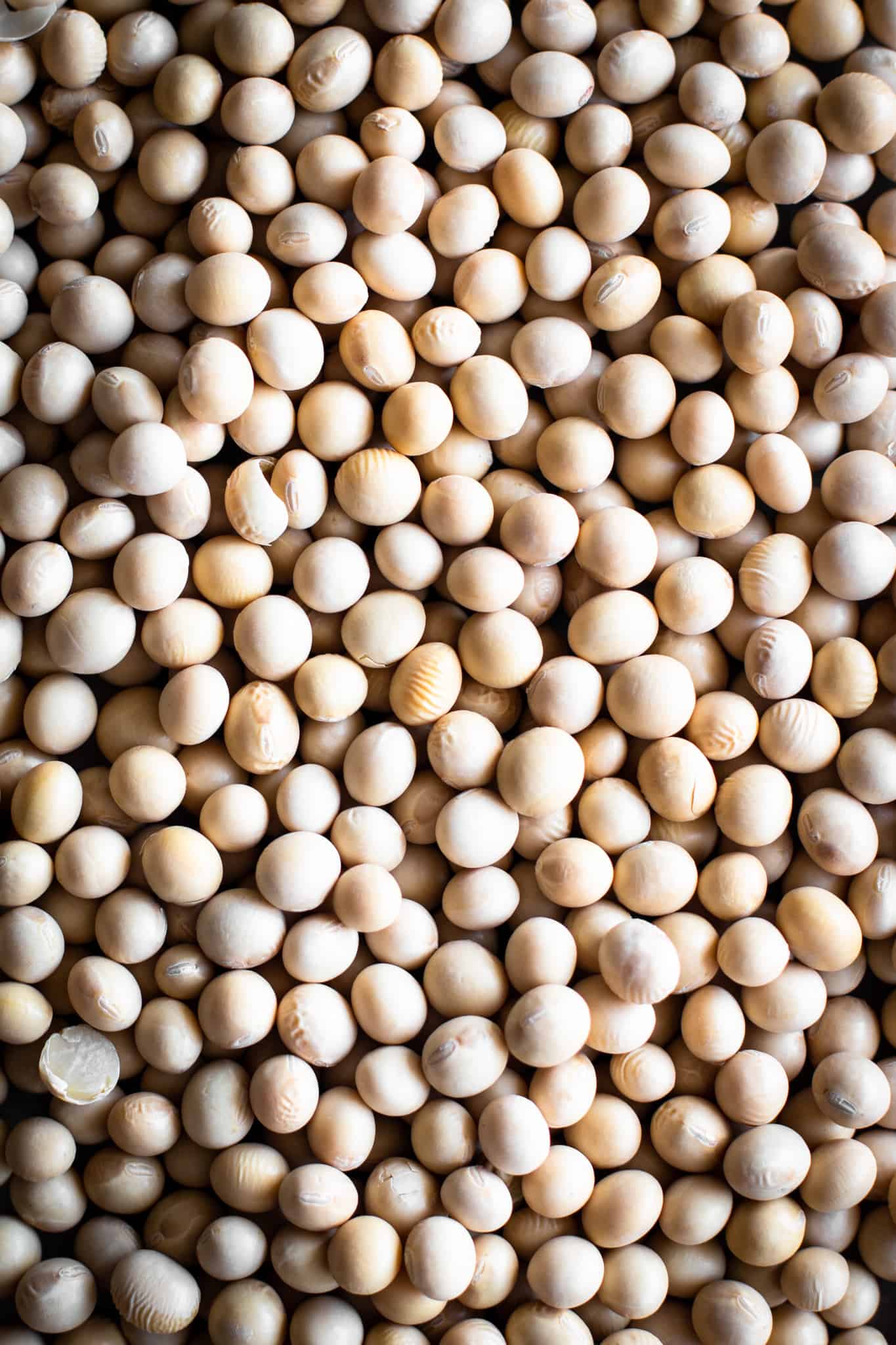
How Much Soy Should You Eat
More research is needed to determine exactly how much soy needs to be consumed for health benefits. However, two to three servings of soy foods a day is thought to be beneficial. This is approximately 15-20 grams of soy protein and 50 to 75 mg of isoflavones.
Food Sources of Soy:
Soy can be used as an additive in some packaged foods. While packaged foods can certainly have a place in a healthy balanced diet, it’s best to choose whole food or minimally processed sources of soy more often. These include:
- Tofu
- Tempeh
- Edamame
- Soy milk
- Miso
- Natto
Should You Avoid Vegan Meat Alternatives?
The short answer: No!
These foods can be a part of a healthy balanced diet. They also offer variety to a plant-based diet and are often high in protein and other nutrients. That being said, they are packaged convenience foods and will often contain a high amount of salt. For that reason, it’s best to enjoy these fun foods in moderation and choose whole plant foods more often. But there’s a place for both!
It’s also important to consider that these foods can make a plant-based diet fun and more realistic for many. So enjoy your meat alternatives, whether it’s for convenience on busy days or just to keep your diet exciting!
How to Incorporate Soy Into Your Diet
Now that we know that we don’t need to avoid soy, here are some tips to incorporate it into your diet.
- Use soy milk as your plant-based milk of choice. You can drink it on its own or add it to smoothies, oatmeal and more. Soy milk is also significantly higher in protein than most other plant-based milks.
- Add crispy tofu to salads or make a tofu sandwich with crispy tofu, vegetables and your favorite condiments.
- Add marinated tempeh to salads or use it as a burger patty!
- Use edamame in salads or roast them for a delicious crunchy snack.
Recipes You Can Try:
Final Thoughts
Our food choices are very personal and are affected by so many factors. Whether you decide to eat soy or not is up to you. However, it’s important to know that we have very little evidence that soy affects our health negatively. On the contrary, we have some good evidence that soy can offer several health benefits. It can also add variety to any diet, particularly vegan diets that rely completely on plant-based foods. There’s a lot of misinformation out there, but there’s no reason to fear soy. Enjoy soy foods if you want and if not, don’t shame those that do so.
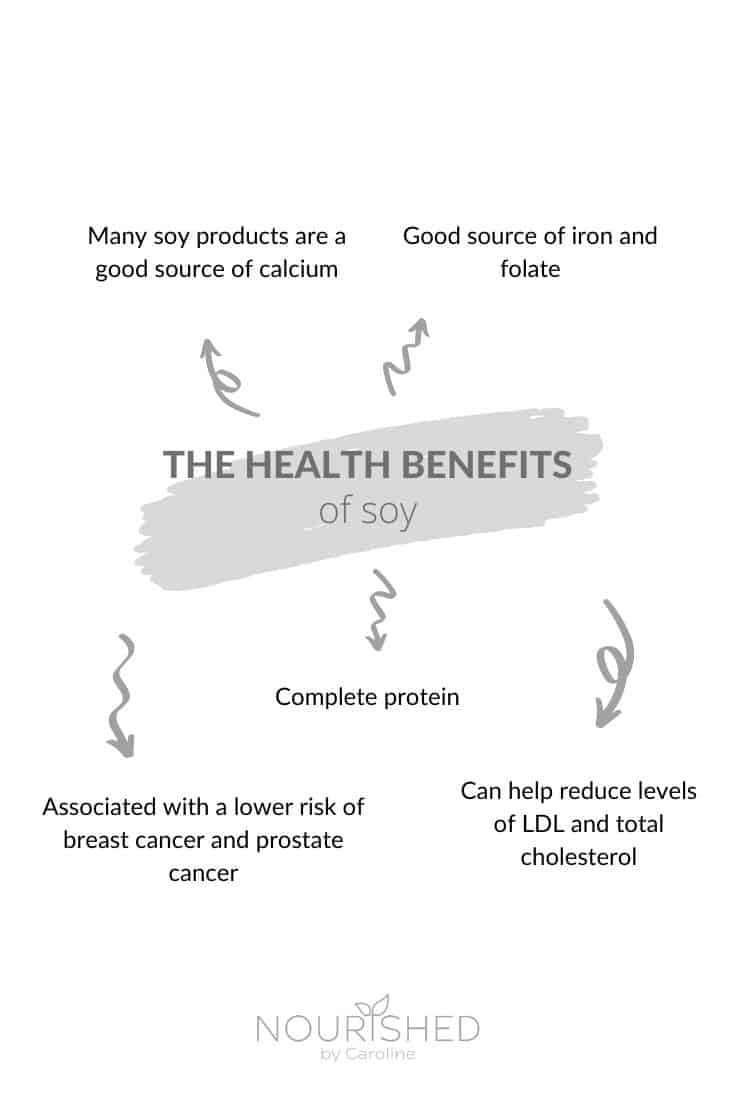
Looking for dietitian support? Book a free 15-minute discovery call or an appointment with me here.
This information is intended for educational purposes only and is not meant to replace individualized nutrition or medical advice.
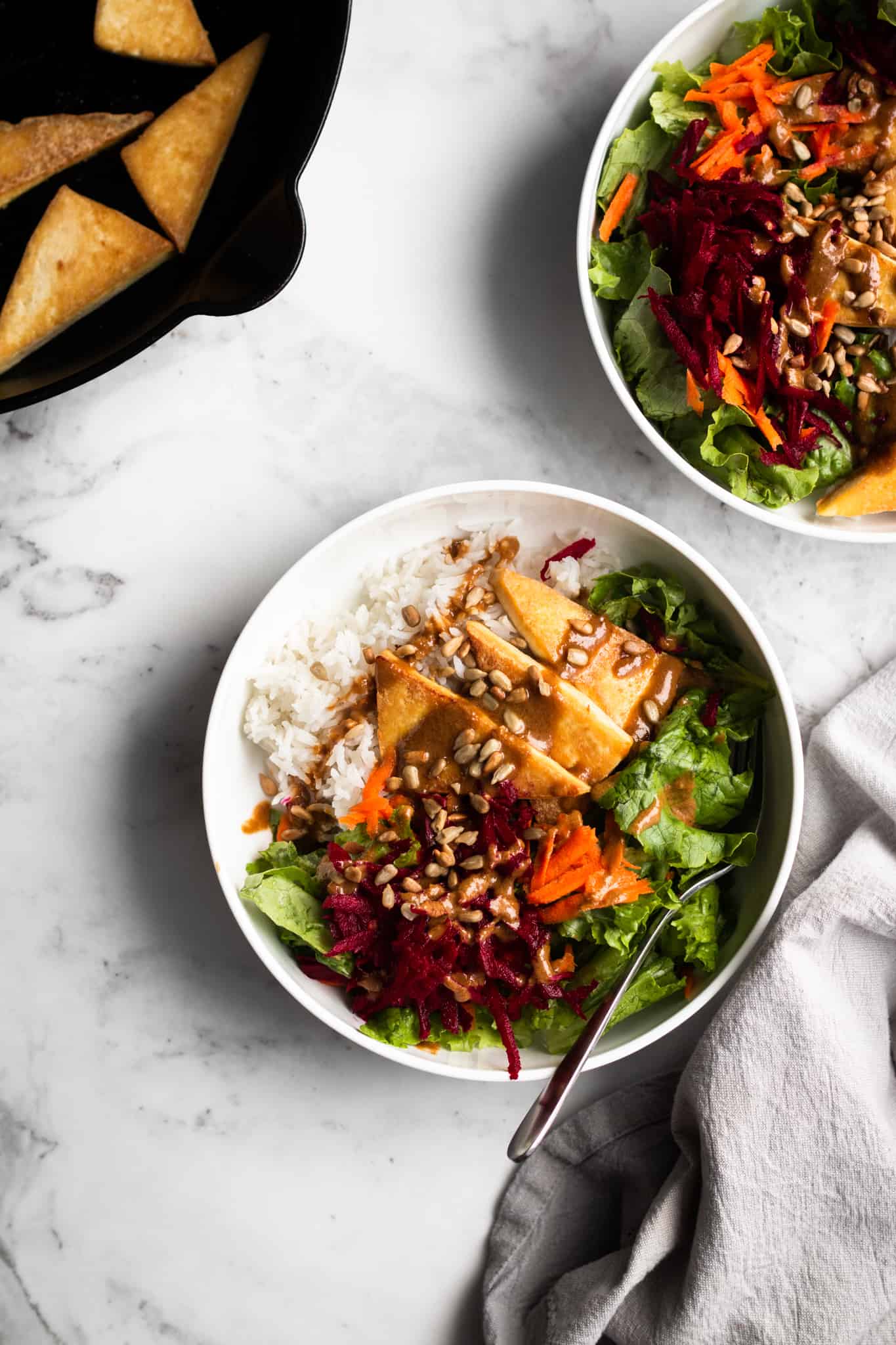
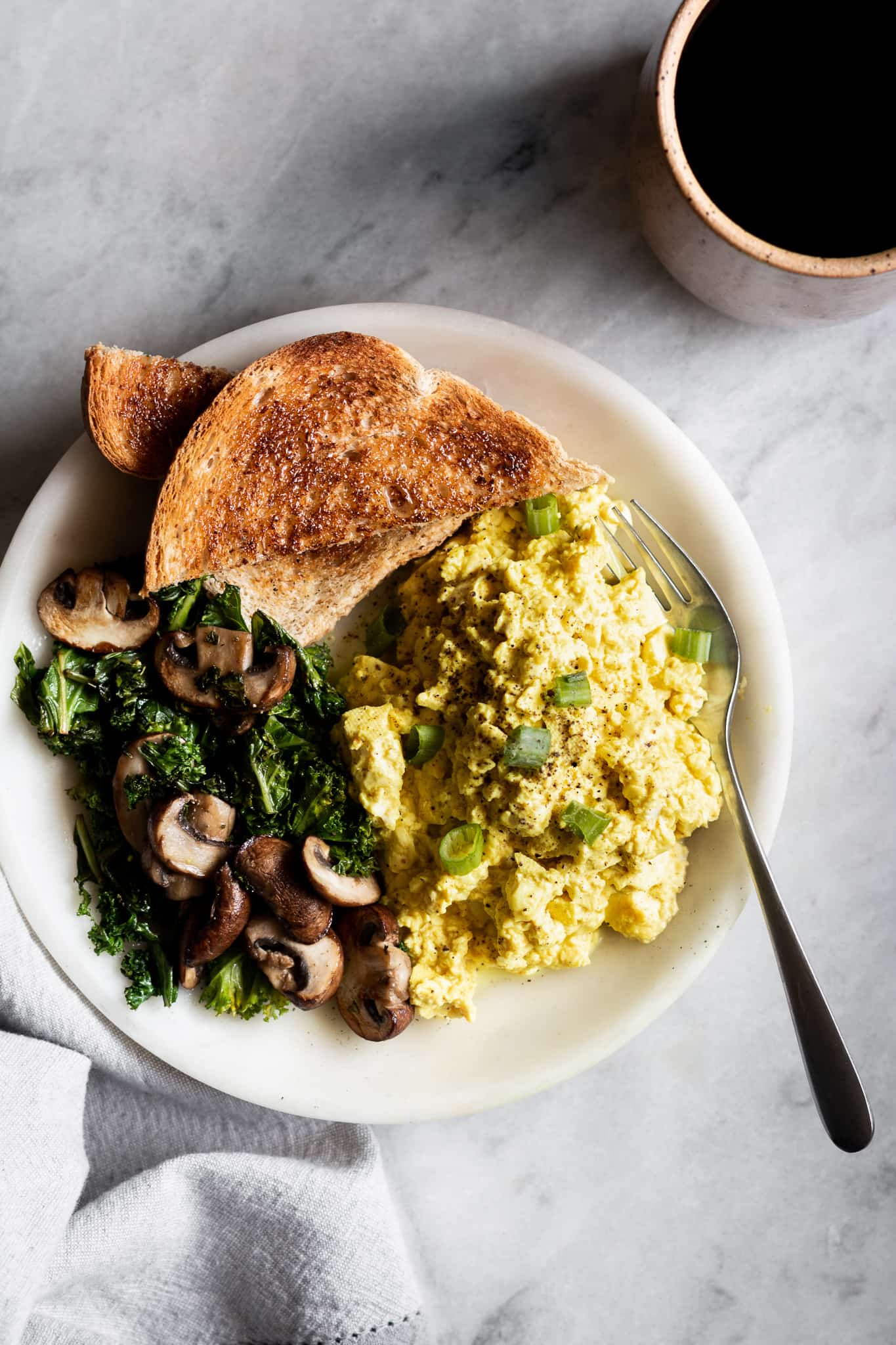


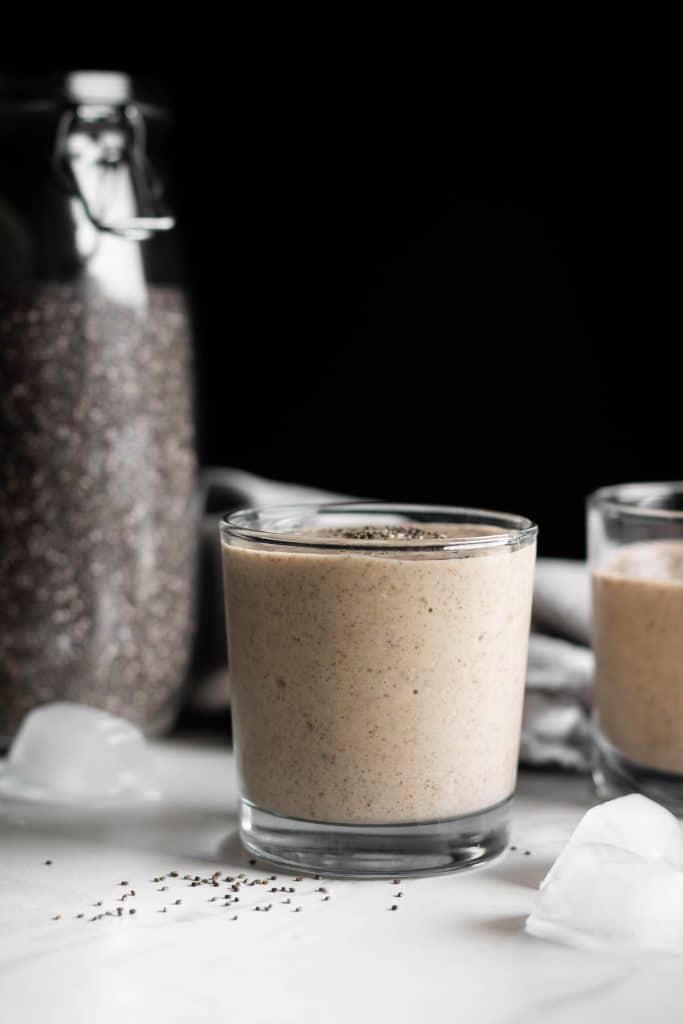





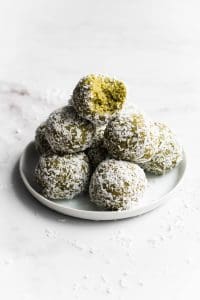





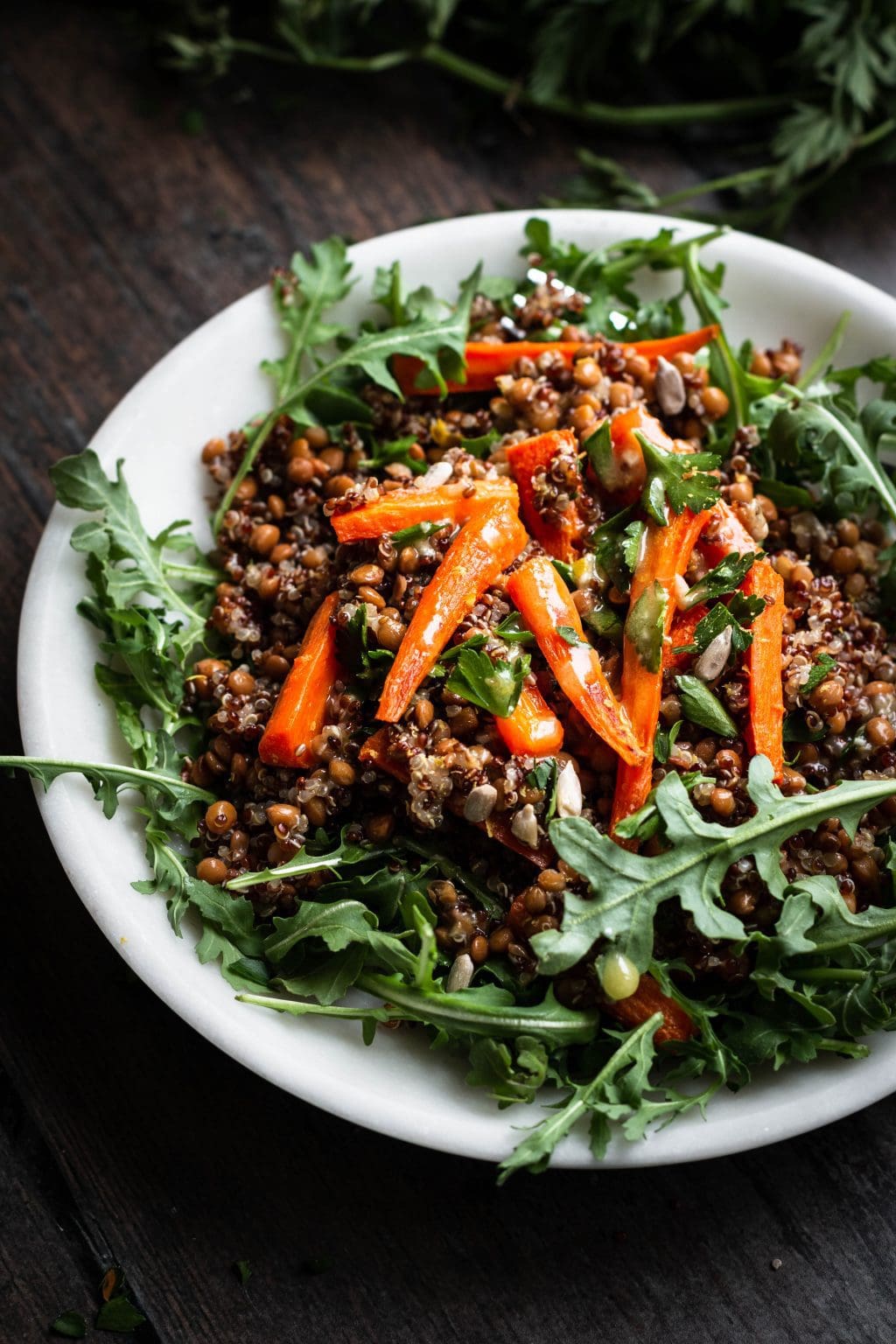
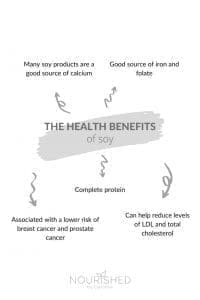
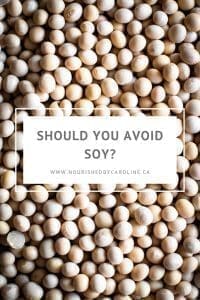

Leave a Reply